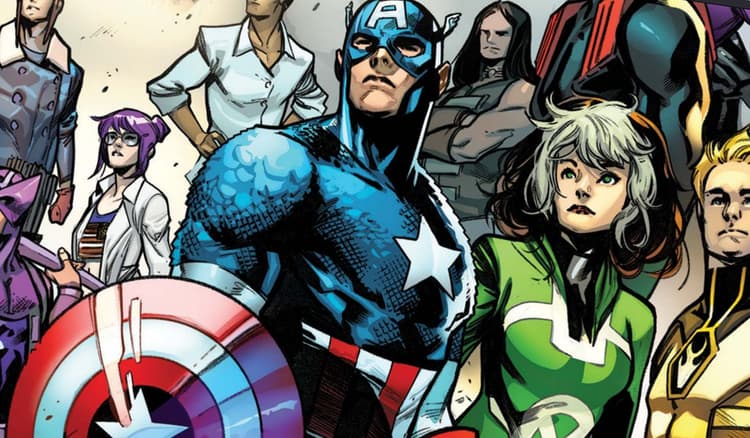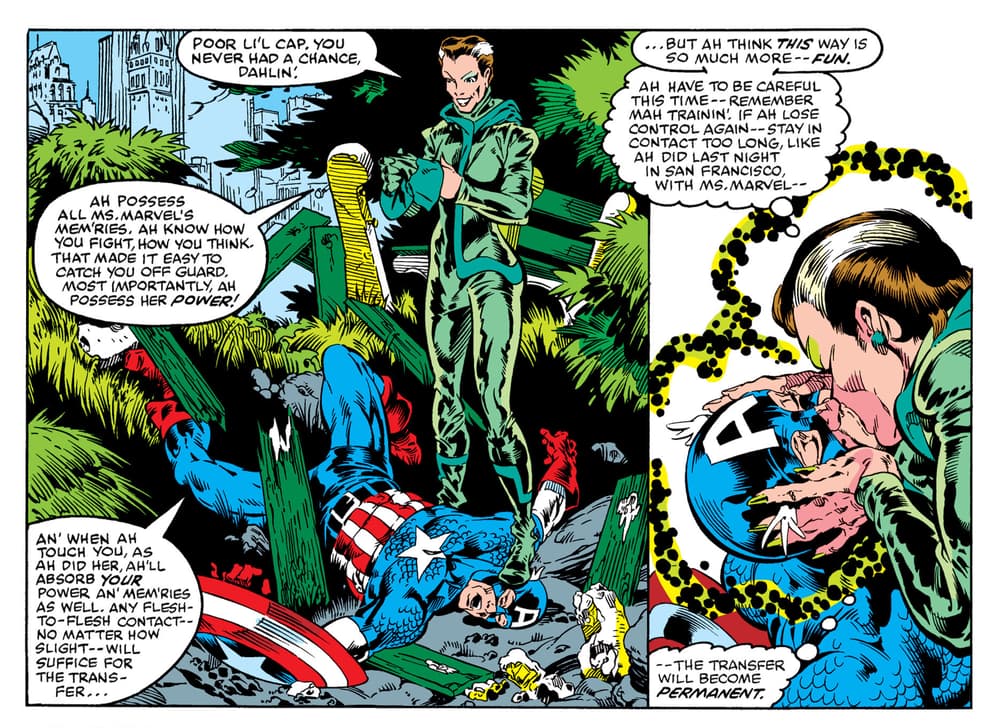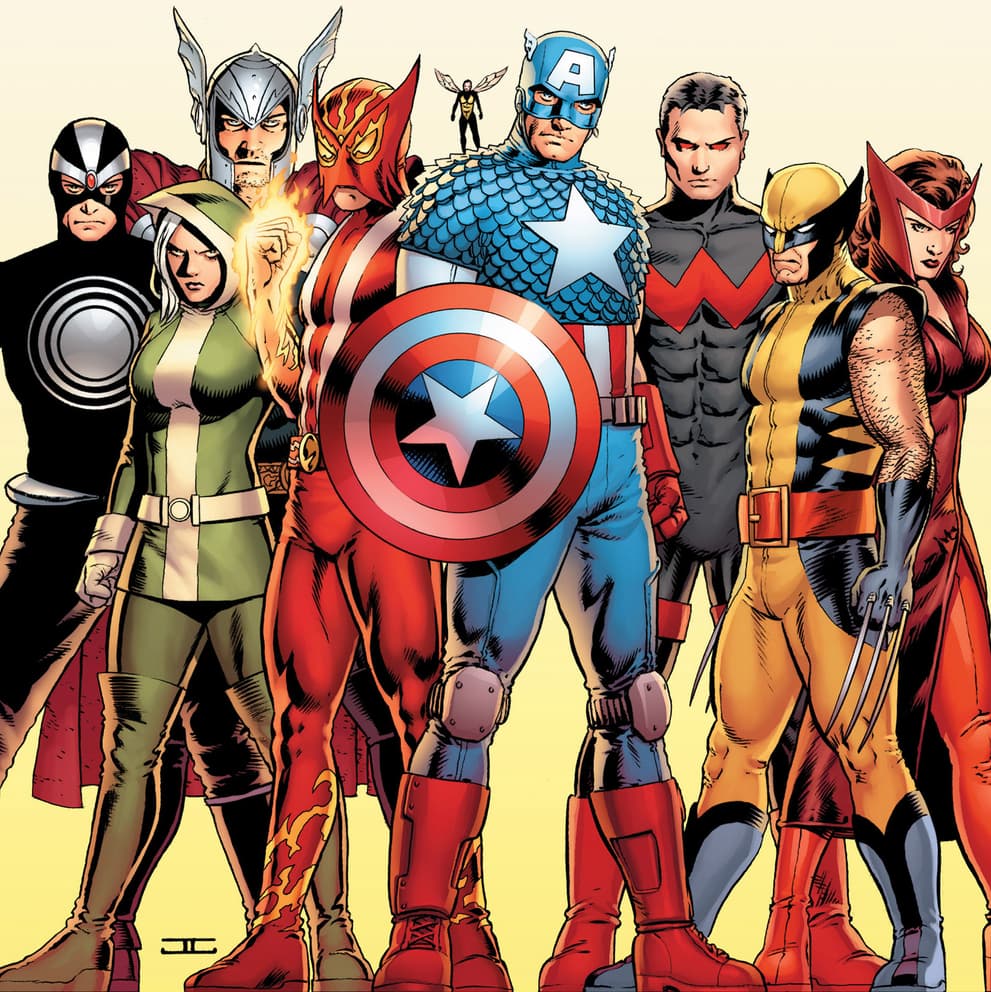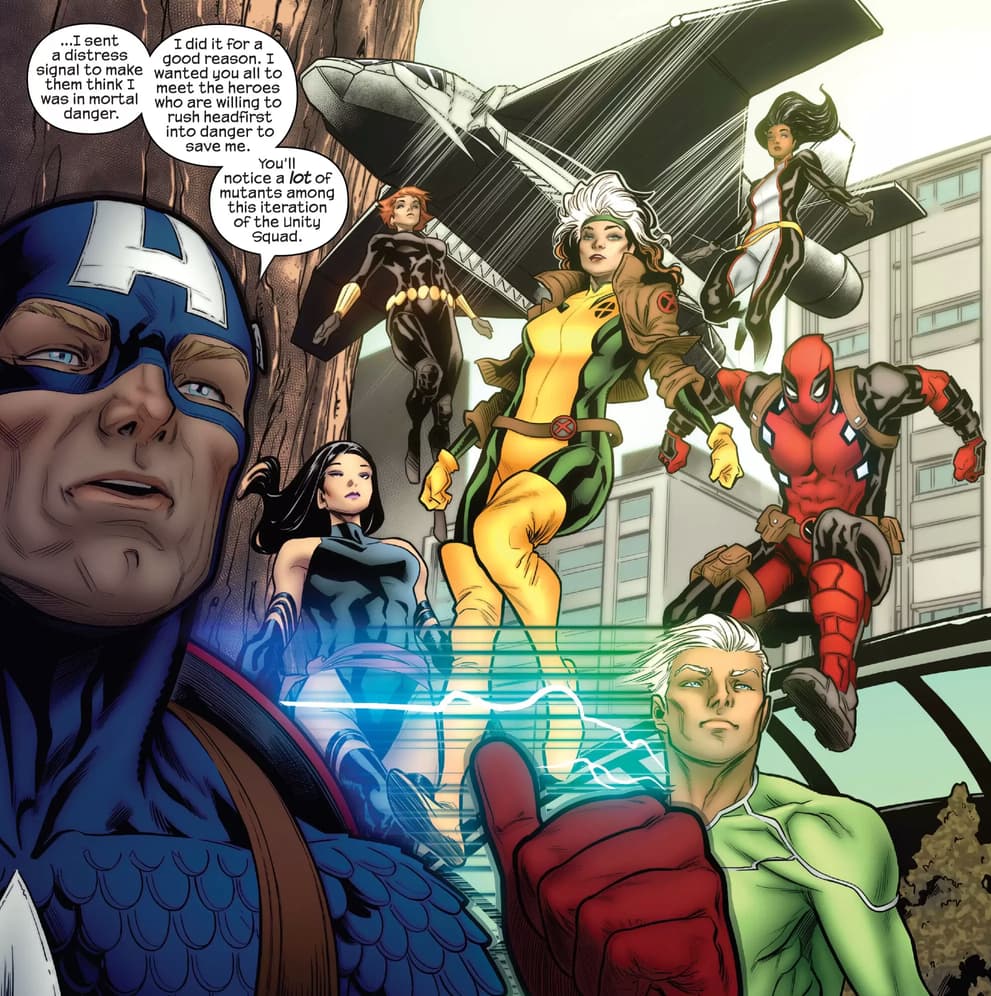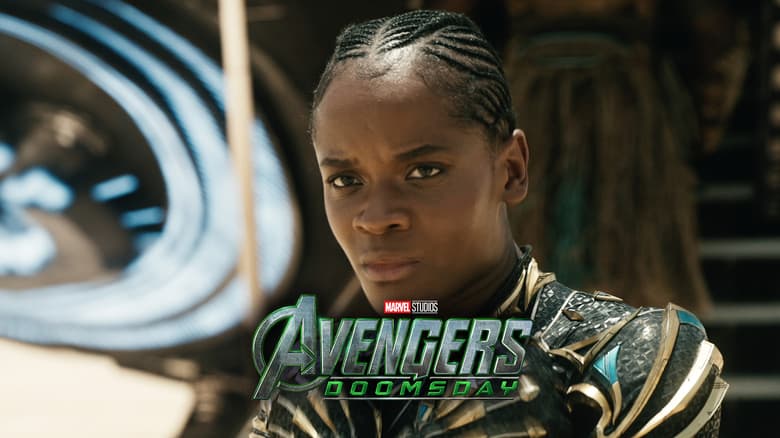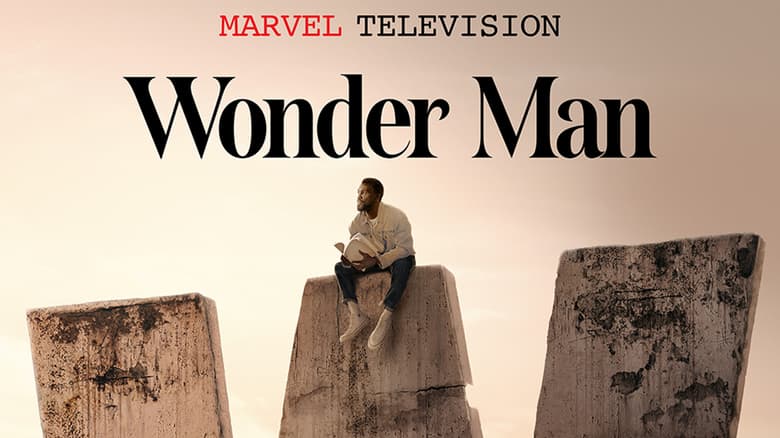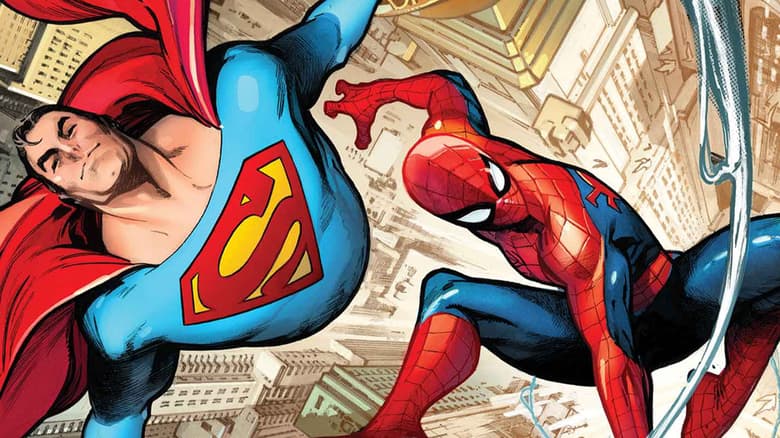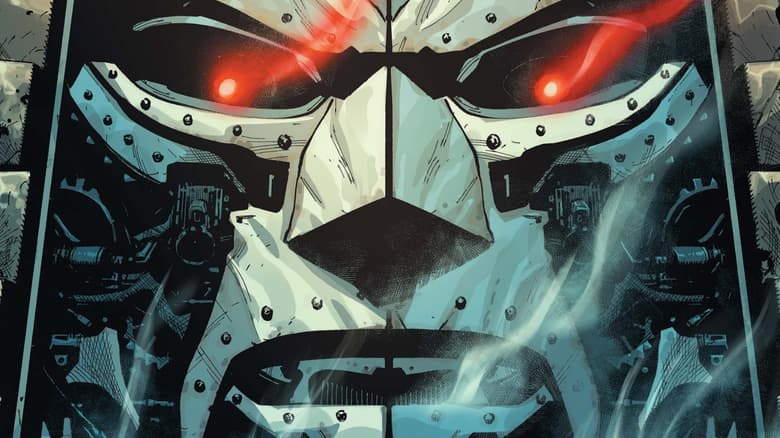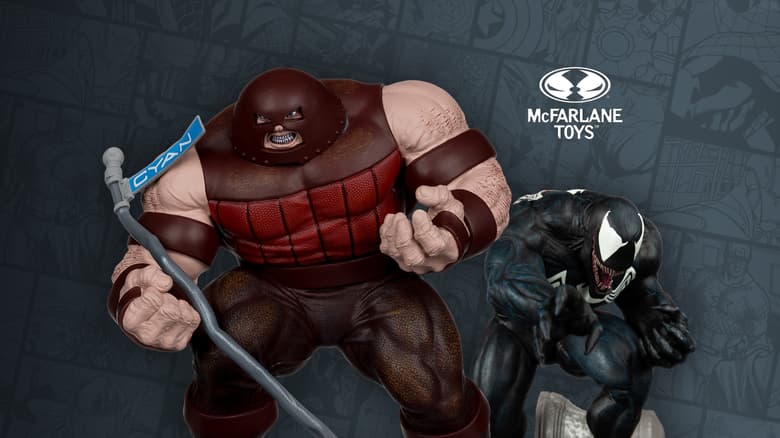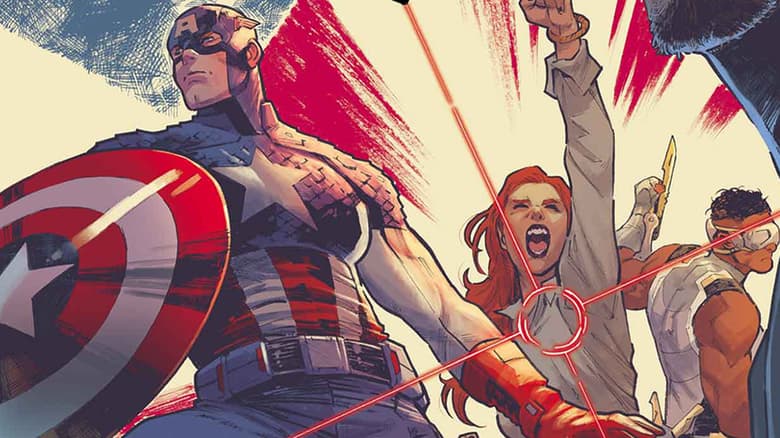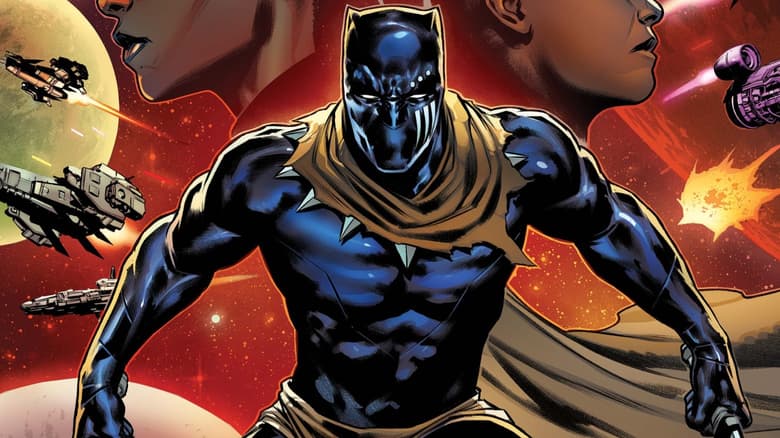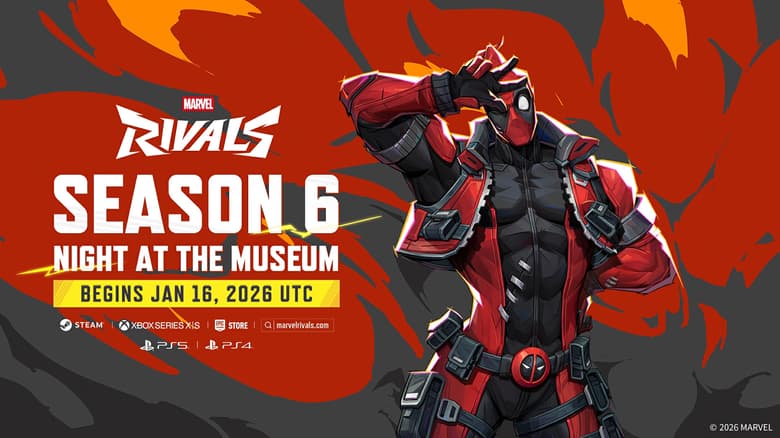Rogue & Captain America's Relationship, Explained
When did Rogue meet Captain America? Learn how these two heroes went from enemies to teammates on the Uncanny Avengers here!
Today, Captain America and Rogue are two of the most trusted leaders in the Marvel Universe. However, these two heroes took very different paths to the Avengers.
Where Captain America has been celebrated as a patriotic icon since World War II, Rogue started as a villain before she became an outcast among outcasts in the X-Men—but after winning over the hearts and minds of her fellow mutants, Rogue proved herself as a hero on countless occasions. When Steve Rogers tried to unite the X-Men and Avengers through a new team, these two heroes came together as the heart of the Avengers Unity Division.
Now, let's take a closer look at Captain America's relationship with Rogue and how Steve Rogers helped this power-absorbing mutant become one of Earth's Mightiest Heroes.
HOW CAPTAIN AMERICA MET ROGUE
Captain America was one of the first heroes Rogue encountered in the Marvel Universe. After the violent onset of her mutant ability to absorb powers and memories through touch, Rogue ran away from home, only to be taken in by Destiny and Mystique, the leaders of the Brotherhood of Evil Mutants.
When Carol Danvers defeated her adoptive parents, Rogue faced the future Captain Marvel alone and semi-permanently absorbed her cosmic powers. Using her newly absorbed super-strength, Rogue attacked Captain America, knocked him unconscious, and absorbed his powers with a kiss in AVENGERS ANNUAL (1967) #10 by Chris Claremont and Michael Golden.
Although Rogue escaped, that encounter left a profound impression on Captain America, as he told Emma Frost in X-MEN: HELLFIRE GALA (2022) #1 by Gerry Duggan, C.F. Villa, Matteo Lolli, Russell Dauterman, and Kris Anka. Rogers told the White Queen that, during that fight, he was testing the young Rogue and assessing how well she could handle herself in battle. Knowing Rogue would either become a lifelong foe or a close ally, Captain America knew he wanted to bring her over to the heroes' side in that moment. Rogers told Frost that the best way to earn someone's trust was to give them more responsibility, an idea that shaped Captain America and Rogue's friendship.
HOW ROGUE JOINED THE AVENGERS
Before Captain America could recruit Rogue, she joined the X-Men, where she reformed and saved the world dozens of times. Rogue and Captain America worked together when the X-Men and the Avengers teamed up to battle threats like Onslaught, and they clashed a few times in stories like CONTEST OF CHAMPIONS II (1999) #4 by Chris Claremont and Michael Ryan.
In a reality where the heroes of SECRET WARS (1984) were trapped on the distant Battleworld for decades, Rogue and Captain America even had a daughter named Sarah, who carried on her parents' legacy as the heroic Crusader in WHAT IF? (1989) #114 by Jay Faerber and Gregg Schigiel.
Shortly after the Scarlet Witch depowered most of the world's mutants during HOUSE OF M (2005), the X-Men and the Avengers went to war in AVENGERS VS X-MEN (2012). When that conflict ended with the death of Professor X, Captain America formed a new team, the Avengers Unity Squad, to bring together mutants and non-mutant heroes in UNCANNY AVENGERS (2012) #1 by Rick Remender and John Cassaday.
Despite Rogue's confrontation with the Scarlet Witch over her role in depowering mutants, both heroes joined the Avengers Unity Squad for a battle against the Red Skull. Although some Avengers remained wary of the X-Men after their recent conflicts, Captain America trusted Rogue to absorb the powers of every member of the Avengers and the X-Men to stop a Celestial from destroying Earth in UNCANNY AVENGERS (2012) #21 by Remender and Daniel Acuña.
ROGUE AND THE UNCANNY AVENGERS
Despite her initial reluctance, Rogue evolved into the driving force behind the next incarnation of the Avengers Unity Squad. After Rogue assembled a short-lived incarnation of the group, Steve Rogers named her as the Unity team's field leader in UNCANNY AVENGERS (2015) #1 by Gerry Duggan and Ryan Stegman. With new teammates like Deadpool, the Human Torch, and the Inhuman Synapse, Rogue helped the heroes break free of mental manipulation during the AVENGERS: STANDOFF (2016) crisis.
After an evil doppelganger replaced Steve Rogers, the fake Captain America forcibly disbanded the team. However, Rogue and Deadpool kept the team going in an unofficial capacity. When the real Rogers returned as Captain America, he thanked Rogue for leading the Unity squad and complimented her leadership skills in UNCANNY AVENGERS (2015) #30 by Jim Zub and Sean Izaakse. Although Rogue helped lead the Avengers through the subsequent AVENGERS: NO SURRENDER crisis, she rejected Rogers' offer to join the Avengers again.
However, everything changed when the anti-mutant organization Orchis attacked the nation of Krakoa, where the X-Men and most other mutants lived. After an Orchis attack in Washington, D.C. almost killed Captain America, Rogue responded to his distress signal in FREE COMIC BOOK DAY 2023: AVENGERS/X-MEN (2023) #1 by Gerry Duggan and Javier Garrón. As she came to his aid, Orchis launched a massive attack on Krakoa that left every mutant on Earth dead, missing, or on the run.
When Captain America reformed the Avengers Unity Squad, Rogue joined him in UNCANNY AVENGERS (2023) #1 by Duggan and Garrón. As they stopped Roger's evil twin from carrying out a nuclear attack, Captain America gave an impassioned speech supporting mutants, underscoring his mutual respect for Rogue and the rest of the X-Men.
Want to read more about Rogue and Captain America? Join Marvel Unlimited for instant access to 30,000+ comics on the Marvel Unlimited app or on the web, with digital issues spanning Marvel Comics classics to ongoing series!
The Daily Bugle
Can’t-miss news and updates from across the Marvel Universe!
